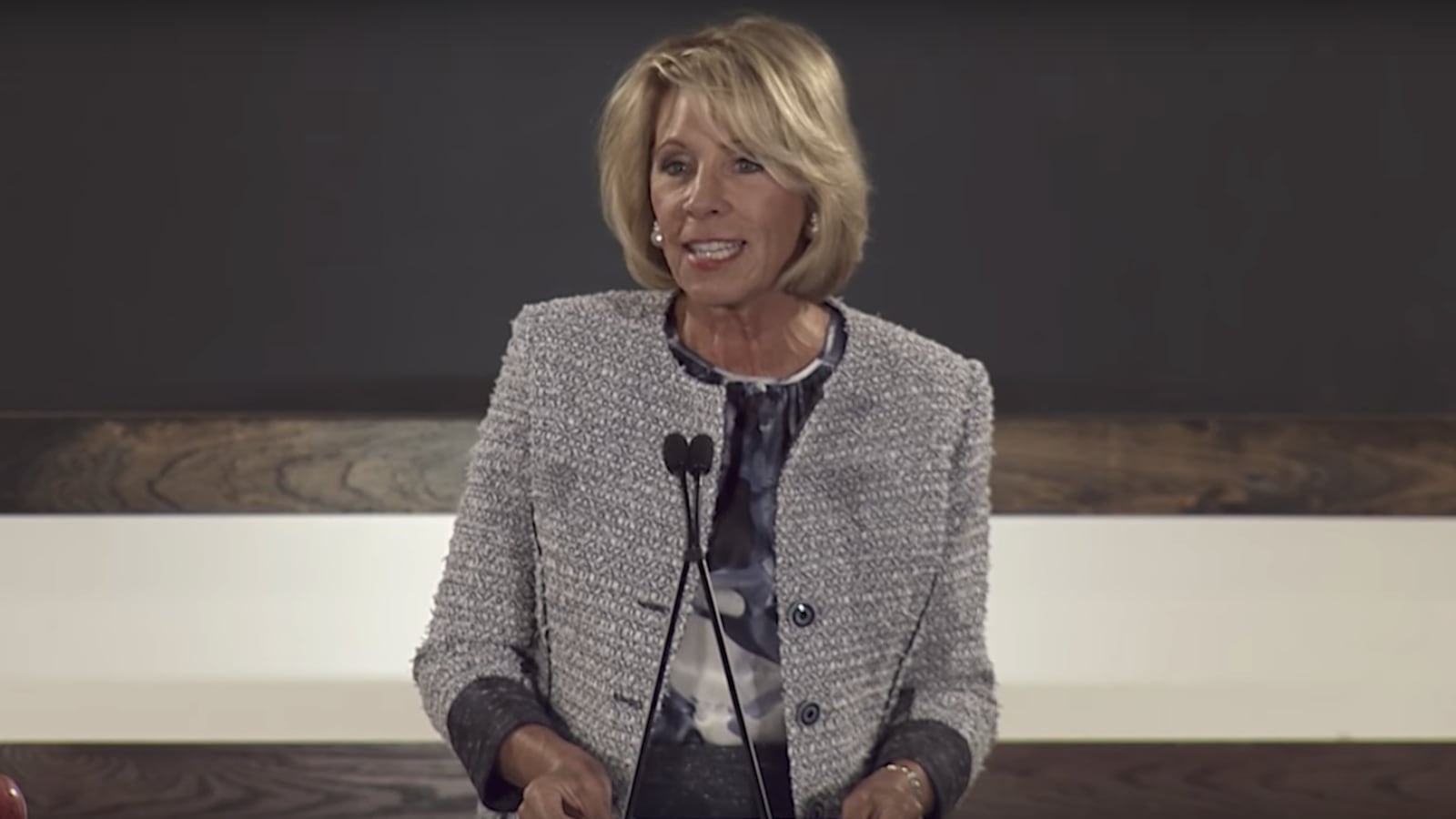While many Tennesseans are still unfamiliar with President-elect Donald Trump’s pick to oversee the nation’s schools, Michigan billionaire Betsy DeVos already has quietly influenced the state’s contentious tug-of-war over a school voucher program.
This election cycle alone, advocacy groups founded and led by DeVos helped to oust at least one outspoken voucher opponent — and elect two new supporters — in Tennessee’s House of Representatives, the key arena for the state’s voucher debate.
From the helm of groups including the American Federation for Children and the Alliance for School Choice, DeVos, a staunch Republican, has contributed millions of dollars nationally to state legislative candidates in favor of vouchers and against those who do not, regardless of political party.
In Tennessee, most of that work has been done through the state’s affiliate of the American Federation for Children, which launched in 2012. The group has spent hundreds of thousands of dollars annually, reaching more than $600,000 for races in 2014. This year, organizers spent at least $169,777 on House races.
Vouchers, which allow the use of taxpayer money for private school tuition, have been a hot potato issue in Tennessee in recent years. Three times since 2011, a voucher bill for low-income students has been approved by the state Senate, only to be shot down in the House, where lawmakers responded to constituent concerns about undermining public schools. But the votes have been increasingly close. During the most recent session, the proposal was only two votes shy of the necessary 50 to become law.
This year, the Tennessee Federation for Children targeted several seats aimed at tipping the balance. Republican Paul Sherrell, who received a $5,000 contribution, defeated Democratic incumbent Rep. Kevin Dunlap for a seat representing Warren, Grundy and White counties. A public high school teacher, Dunlap virulently opposed vouchers during both years of his term serving on a House education panel.
The group also spent nearly $6,000 in support of Republican Michael Curcio, who won the Dickson-area district seat held by Democrat and voucher opponent David Shepard before he retired this year.
This summer, Tennessee Federation for Children was active during the summer’s Democratic primaries in Memphis, where the latest voucher proposal would have the largest impact. There, the affiliate spent $54,466 in support of school choice candidates — and a combined $25,144 against incumbents Antonio Parkinson and Johnnie Turner, who consistently have voted against voucher bills. Parkinson and Turner retained their seats, and only one candidate supported by the Tennessee Federation for Children won: Rep. John DeBerry, a passionate believer that vouchers would improve outcomes in his city.
The Tennessee affiliate is funded in part by DeVos’s philanthropic foundation, the Alliance for School Choice, receiving $200,000 in 2014. The same year, the foundation awarded $100,000 to the Beacon Center of Tennessee, a free-market think tank that encourages lawmakers to embrace school choice legislation including vouchers.
It’s not yet clear if the Tennessee House’s pro-voucher contingent gained sufficient ground as a result of spending in this year’s elections, though the lead sponsor of last year’s voucher bill is optimistic.
“The elections definitely benefitted those who believe parents should have a choice in where the students go to school,” Rep. Bill Dunn said this week.
The Knoxville Republican noted that support for vouchers has steadily increased in Tennessee since he was first elected to the legislature more than 20 years ago. While he believes that support needs to grow to clinch the voucher vote, he attributes the gradual rise in part to groups like Tennessee Federation for Children.
“I’m very, very happy that people have gotten involved and said they’re willing to support this,” he said.
Want to know more about how Tennessee’s most recent voucher proposal would impact schools? Read our explainer here.


